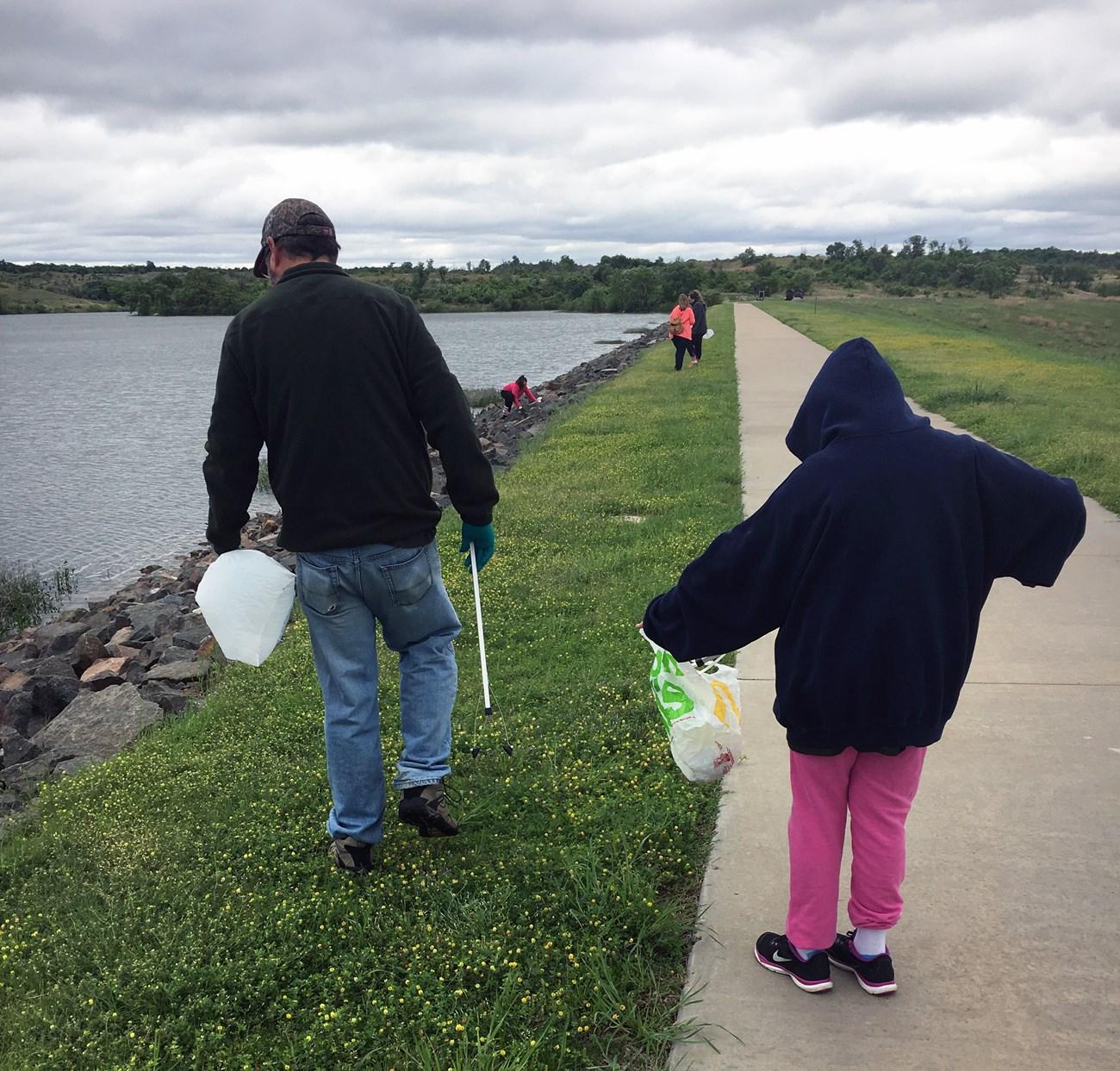
Chickasaw National Recreation Area: Nature's Oasis in Oklahoma
Nestled in the heart of south-central Oklahoma, Chickasaw National Recreation Area is a serene escape for nature lovers and outdoor enthusiasts. This beautiful park, spread across over 9,000 acres, offers a unique blend of natural beauty and recreational activities. The park's diverse landscape includes lush forests, rolling hills, and pristine lakes, making it a perfect destination for those seeking tranquility and adventure alike. Visitors can enjoy a range of activities such as hiking, camping, fishing, and swimming. The park's numerous trails offer something for everyone, from easy strolls to challenging hikes that reward with stunning vistas. The Travertine Creek and Rock Creek are popular spots for swimming and picnicking, providing a refreshing break during the hot summer months. The Veterans Lake and Lake of the Arbuckles are well-known for boating and fishing, attracting anglers from all over the region. In addition to its natural attractions, the Chickasaw National Recreation Area is rich in history and culture. The park is named after the Chickasaw Nation, and visitors can learn about the tribe's heritage at the Chickasaw Cultural Center nearby. The park also features historic structures like the Lincoln Bridge and the Travertine Nature Center, which offer insight into the area's past and its geological significance. Whether you're seeking relaxation or adventure, Chickasaw National Recreation Area promises an unforgettable experience in the heart of Oklahoma.
Local tips in Chickasaw National Recreation Area
- Visit early in the morning to enjoy the park's tranquility and avoid crowds.
- Bring plenty of water, especially during the hot summer months.
- Check the park's schedule for ranger-led programs and guided tours.
- Don't forget to pack bug spray and sunscreen.
- Visit in the fall to witness the stunning foliage.
Chickasaw National Recreation Area: Nature's Oasis in Oklahoma
Nestled in the heart of south-central Oklahoma, Chickasaw National Recreation Area is a serene escape for nature lovers and outdoor enthusiasts. This beautiful park, spread across over 9,000 acres, offers a unique blend of natural beauty and recreational activities. The park's diverse landscape includes lush forests, rolling hills, and pristine lakes, making it a perfect destination for those seeking tranquility and adventure alike. Visitors can enjoy a range of activities such as hiking, camping, fishing, and swimming. The park's numerous trails offer something for everyone, from easy strolls to challenging hikes that reward with stunning vistas. The Travertine Creek and Rock Creek are popular spots for swimming and picnicking, providing a refreshing break during the hot summer months. The Veterans Lake and Lake of the Arbuckles are well-known for boating and fishing, attracting anglers from all over the region. In addition to its natural attractions, the Chickasaw National Recreation Area is rich in history and culture. The park is named after the Chickasaw Nation, and visitors can learn about the tribe's heritage at the Chickasaw Cultural Center nearby. The park also features historic structures like the Lincoln Bridge and the Travertine Nature Center, which offer insight into the area's past and its geological significance. Whether you're seeking relaxation or adventure, Chickasaw National Recreation Area promises an unforgettable experience in the heart of Oklahoma.
When is the best time to go to Chickasaw National Recreation Area?
Unmissable attractions to see
Turner Falls Park
Explore Turner Falls Park in Oklahoma, a stunning natural retreat offering breathtaking waterfalls, hiking trails, and serene swimming basins for outdoor enthusiasts.
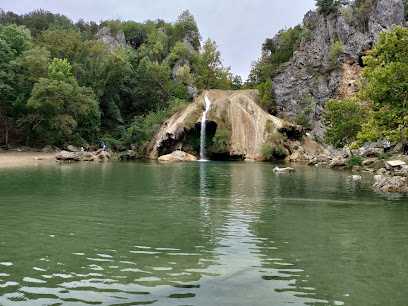
Arbuckle Wilderness
Discover the thrill of wildlife at Arbuckle Wilderness; a unique safari experience in Oklahoma with exotic animals and family-friendly attractions.
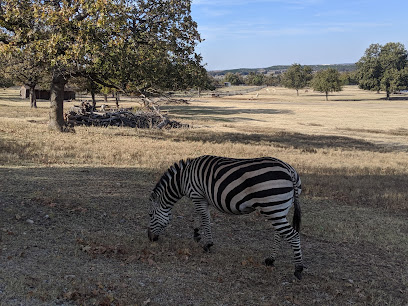
Chickasaw Cultural Center
Explore the vibrant culture and rich history of the Chickasaw Nation at the Chickasaw Cultural Center, a must-visit destination in Sulphur, Oklahoma.
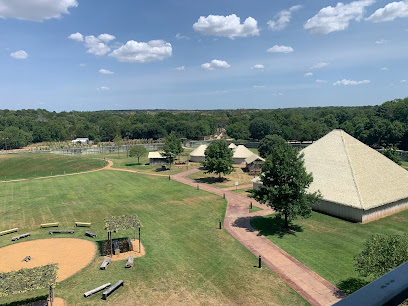
Little Niagara Falls
Experience the serene beauty of Little Niagara Falls in Sulphur, Oklahoma, a stunning park featuring picturesque waterfalls and lush landscapes.
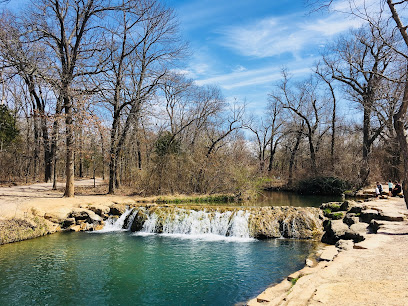
Travertine Nature Center
Explore the stunning natural beauty and unique springs at Travertine Nature Center in Sulphur, Oklahoma, a perfect destination for nature lovers.
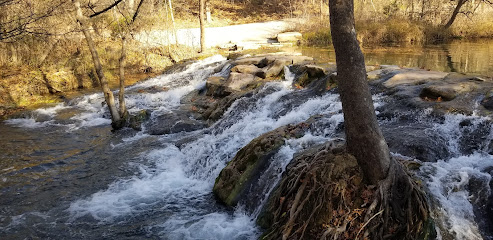
Turner Falls Overlook
Experience the breathtaking beauty of Turner Falls Overlook, Oklahoma's tallest waterfall in a serene natural park setting, perfect for adventure and relaxation.
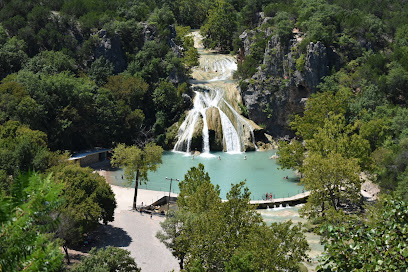
Vendome Well & Flower Park
Experience the charm of Vendome Well & Flower Park in Sulphur, OK, a serene destination known for its stunning floral displays and mineral-rich waters.
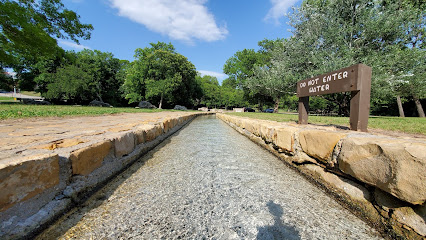
Buffalo Springs
Explore Buffalo Springs in Sulphur, Oklahoma, where nature's beauty meets adventure, offering refreshing springs and scenic landscapes for all travelers.
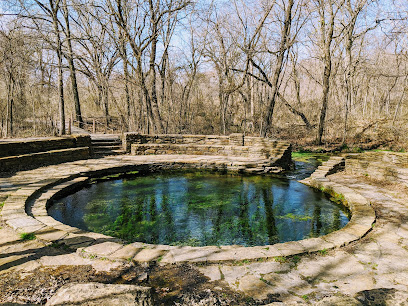
Boulder Springs
Experience the tranquil beauty and rich history of Boulder Springs, a cherished landmark in Davis, Oklahoma, perfect for relaxation and exploration.
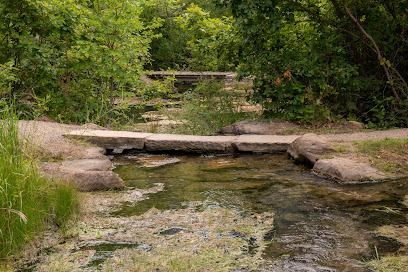
Arbuckle Historical Society
Explore the Arbuckle Historical Society in Sulphur, Oklahoma, and delve into the region's rich cultural heritage through fascinating exhibits and local stories.
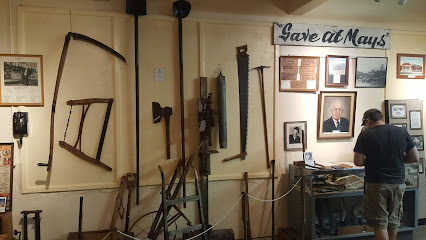
Drunken Horse Falls
Experience the breathtaking beauty of Drunken Horse Falls in Oklahoma, a tranquil oasis perfect for nature lovers and adventure seekers alike.
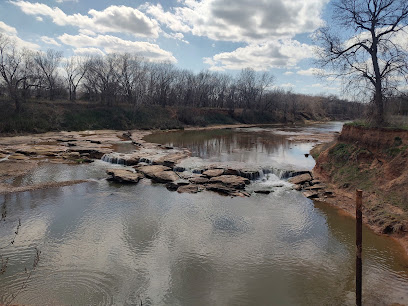
Oka' Chokmasi
Oka' Chokmasi: A Serene Park in Sulphur, Oklahoma, Perfect for Nature Lovers and Outdoor Enthusiasts.
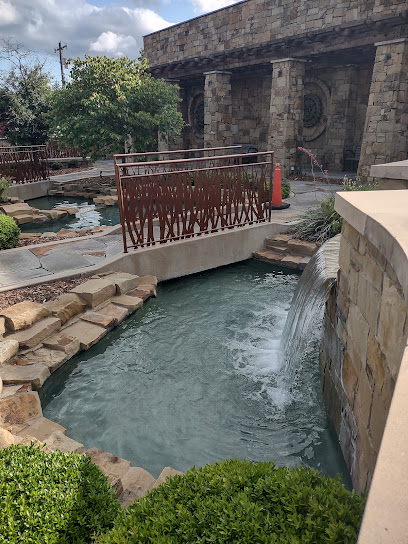
Little Niagara
Experience the natural beauty of Little Niagara in Sulphur, Oklahoma, where serene waterfalls and scenic trails await visitors of all ages.
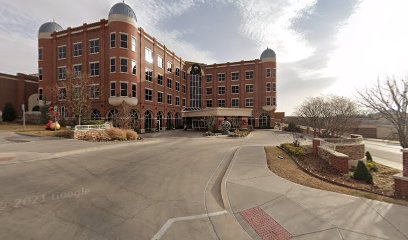
Markets, malls and hidden boutiques
Chickasaw National Recreation Area
Discover the beauty of Chickasaw National Recreation Area, where adventure meets tranquility amidst stunning landscapes and rich cultural heritage.
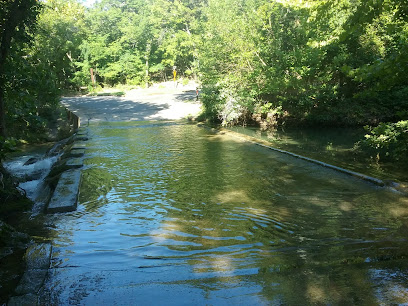
Chickasaw Cultural Center
Experience the rich cultural heritage of the Chickasaw Nation at the Chickasaw Cultural Center in Sulphur, Oklahoma - a must-visit for every traveler.
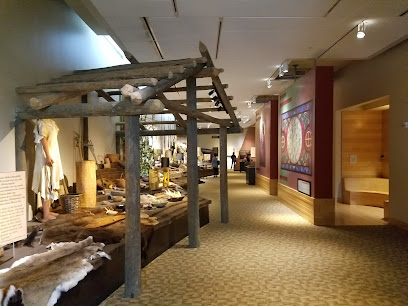
Bedré Fine Chocolate
Experience the rich flavors and artistry of handcrafted chocolates at Bedré Fine Chocolate, a sweet haven in Davis, Oklahoma.
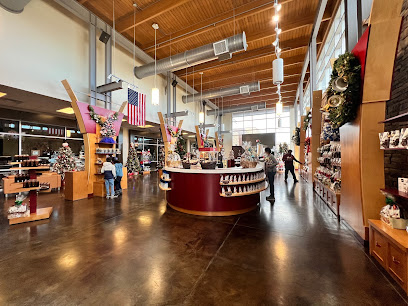
Chickasaw Visitor Center
Discover the rich heritage and stunning landscapes of the Chickasaw Nation at the vibrant Chickasaw Visitor Center in Sulphur, Oklahoma.
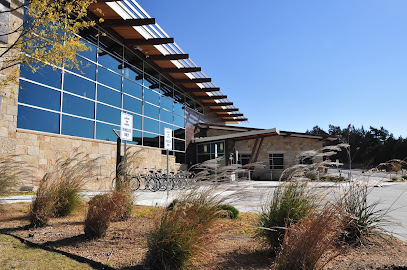
Travertine Nature Center
Explore the natural beauty and educational wonders of Travertine Nature Center in Sulphur, Oklahoma, a perfect destination for nature lovers.
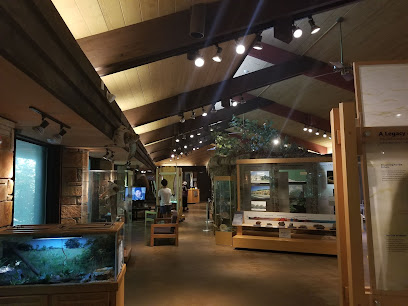
Chickasaw Retreat & Conference Center
Discover peace and inspiration at Chickasaw Retreat & Conference Center, the perfect escape for relaxation and events in Sulphur, Oklahoma.
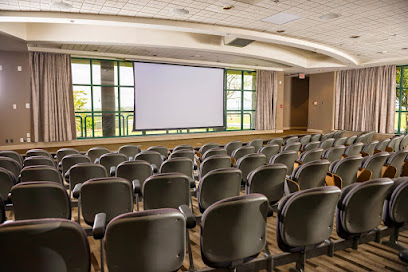
Tractor Supply Co.
Explore Tractor Supply Co. in Sulphur, OK: Your one-stop shop for farm supplies, pet essentials, and outdoor gear, all in a friendly community atmosphere.
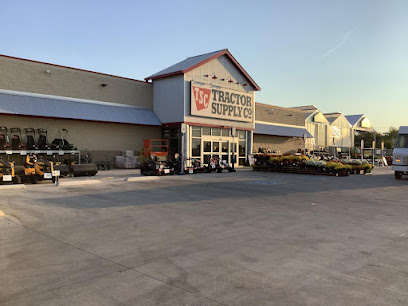
Arbuckle Farmacy
Discover unique gifts and premium cannabis products at Arbuckle Farmacy, your go-to destination in Sulphur, Oklahoma for quality and variety.
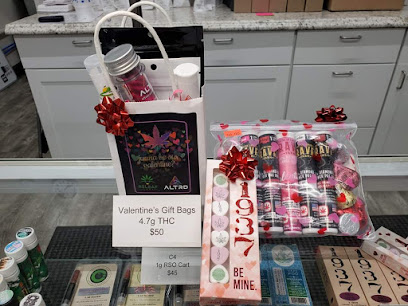
Painted Door
Explore Painted Door in Oklahoma City for unique gifts and local artistry that capture the essence of your visit.
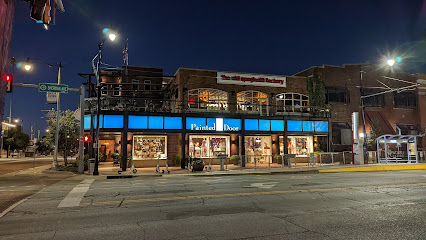
Ardmore Emporium
Explore Ardmore Emporium for a unique selection of antiques and vintage treasures in Ardmore, Oklahoma, where history comes alive.
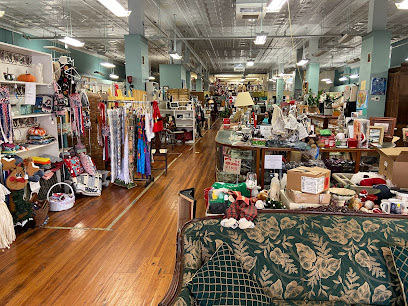
JJS Furniture & More Llc
Explore a unique selection of home furnishings at JJS Furniture & More LLC in Sulphur, Oklahoma, perfect for adding local charm to your home.
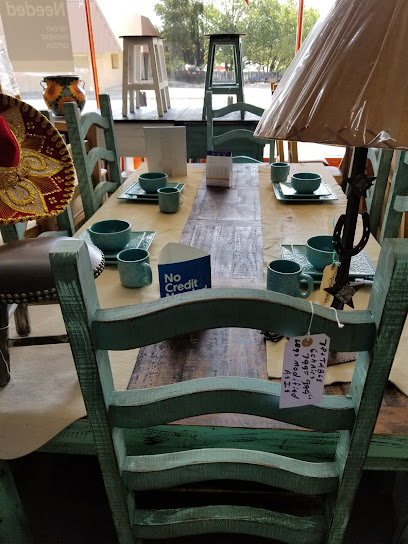
D & D Collectibles
Explore D & D Collectibles in Davis, Oklahoma - a unique destination for antique lovers and collectors full of historical treasures.
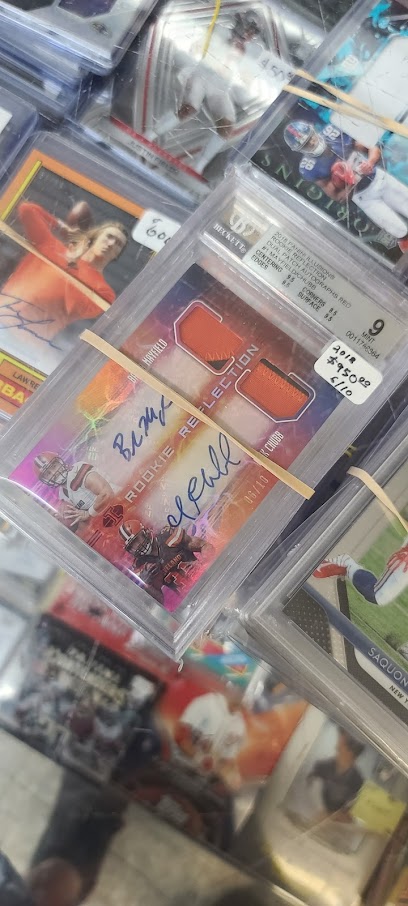
The Spice & Tea Exchange of Sulphur
Discover the rich world of flavors at The Spice & Tea Exchange of Sulphur, where spices and teas ignite your culinary creativity.
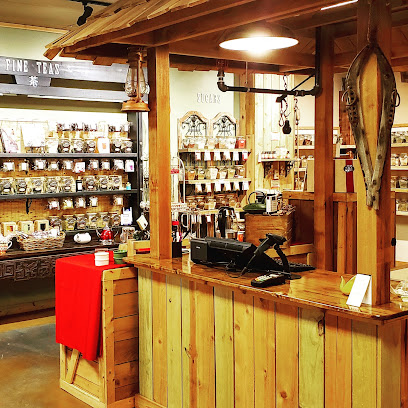
Sweet Swirlz
Discover Sweet Swirlz in Sulphur, Oklahoma - a whimsical candy store filled with delightful treats for every sweet tooth.
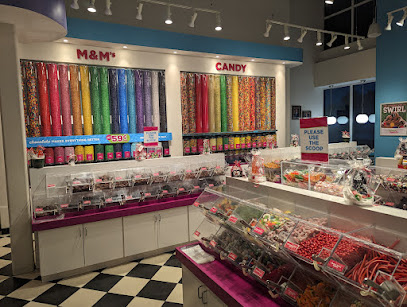
3rd & Broadway
Explore the charm of 3rd & Broadway, a boutique in Sulphur, Oklahoma, showcasing unique gifts and local artisan crafts.
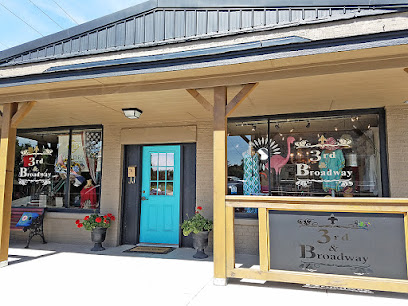
Essential bars & hidden hideouts
The Artesian Hotel, Casino & Spa
Discover the ultimate getaway at The Artesian Hotel, Casino & Spa, where luxury meets excitement in beautiful Sulphur, Oklahoma.
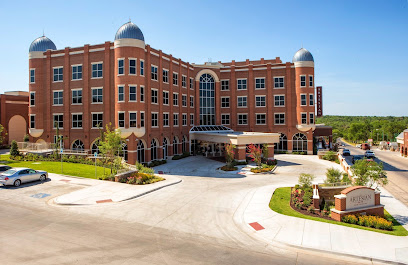
Potrillos Mexican Restaurant, LLC
Experience authentic Mexican cuisine at Potrillos Mexican Restaurant, a vibrant dining destination in Sulphur, Oklahoma, perfect for food lovers.
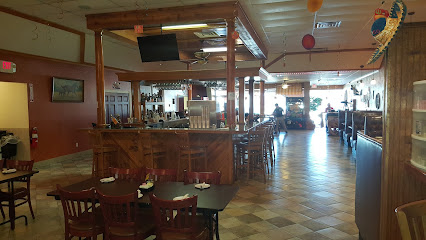
McDonald's
Experience the convenience of McDonald's in Sulphur, Oklahoma, where fast food meets affordability and comfort.
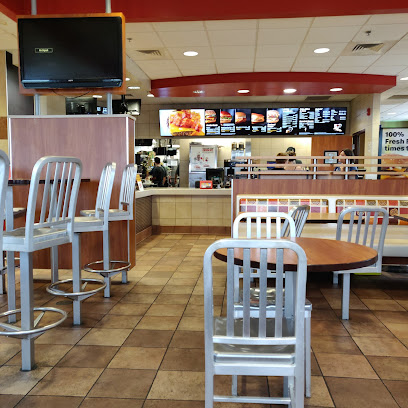
Fat Bullys
Savor mouthwatering hamburgers and American cuisine at Fat Bullys, a beloved dining spot in the heart of Sulphur, Oklahoma.
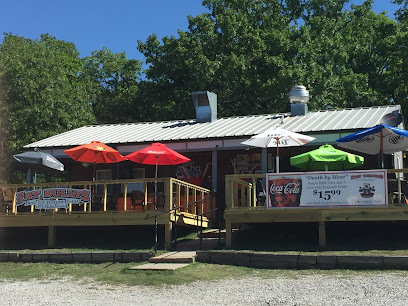
Springs at the Artesian
Discover the rich flavors of American cuisine in a family-friendly setting at Springs at the Artesian in Sulphur, Oklahoma.
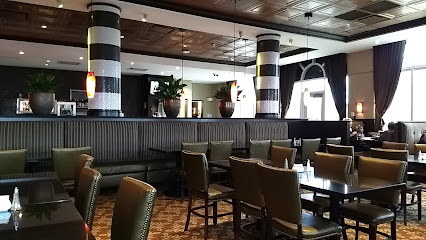
Boomarang Diner
Experience the heartwarming flavors of classic American diner cuisine at Boomarang Diner in Sulphur, Oklahoma.
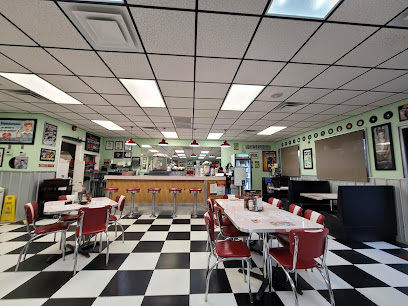
Poor Girls Cafe
Discover the heartwarming comfort food of Poor Girls Cafe in Sulphur, Oklahoma, where every meal feels like home.
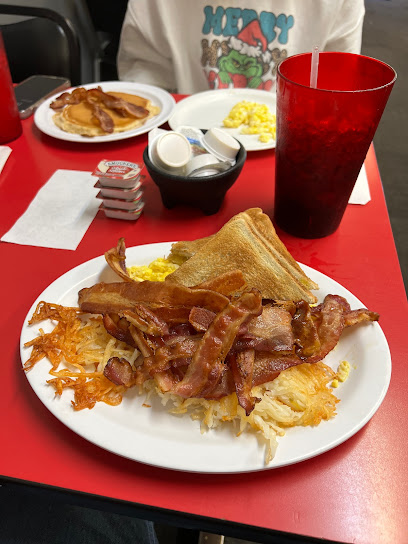
Sonic Drive-In
Savor the nostalgia at Sonic Drive-In in Sulphur, OK, where classic fast food meets retro carhop service for a delightful dining experience.
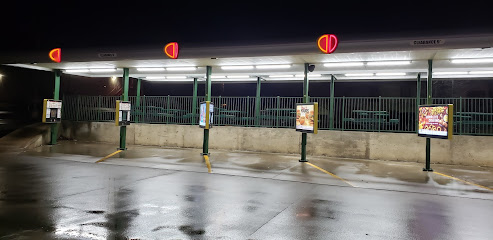
Abuelita's
Experience authentic Mexican cuisine at Abuelita's in Sulphur, Oklahoma - a colorful dining destination for every food lover.
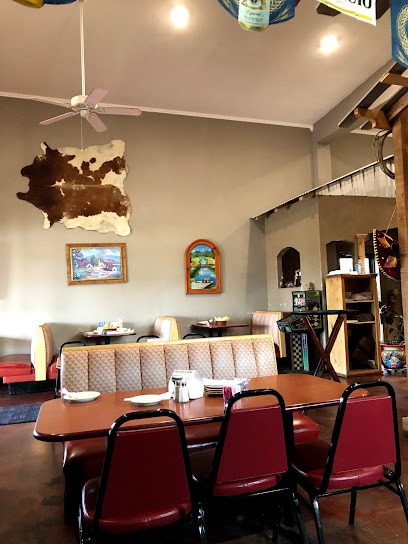
Carl’s Jr.
Experience the delicious fast food offerings at Carl's Jr. in Sulphur, Oklahoma - perfect for a quick, satisfying meal during your travels.
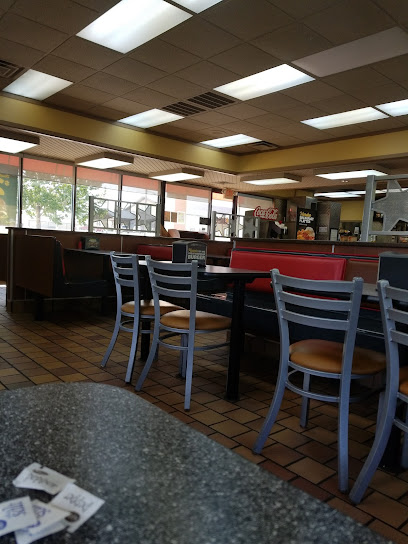
Bedré Cafe
Discover Bedré Cafe in Sulphur, Oklahoma: A charming restaurant offering delicious, locally sourced meals in a nostalgic 50s diner setting.
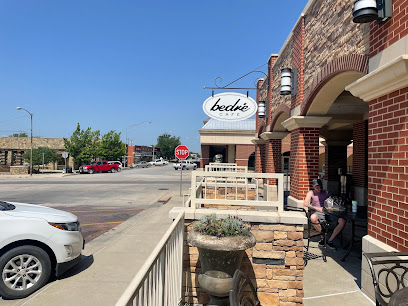
Mazzio's Italian Eatery
Discover the authentic taste of Italy at Mazzio's Italian Eatery in Sulphur, where delicious pizzas and fresh pasta await your palate.
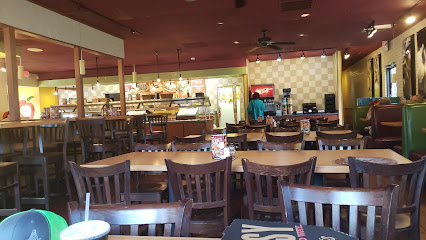
Taco Mayo
Indulge in hearty burritos, crunchy tacos, and vibrant Tex-Mex flavors at Taco Mayo, Sulphur's go-to fast-food destination.
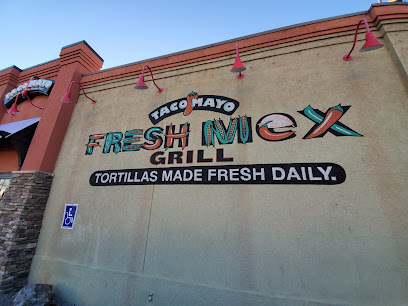
Pizza Hut
Experience the joy of delicious pizza and wings at Pizza Hut in Sulphur, Oklahoma, where every meal is a delightful treat for your taste buds.
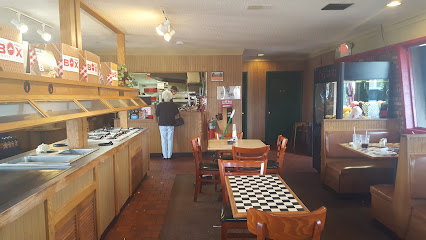
El Jimador Mexican Grill & Cantina
Experience authentic Mexican cuisine at El Jimador Mexican Grill & Cantina in Sulphur, where vibrant flavors meet a lively atmosphere.
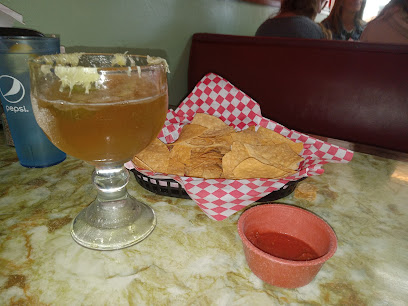
Local Phrases about Chickasaw National Recreation Area
-
- HelloHalito
[ha-lee-toh] - GoodbyeChi pisa la chike
[chee pee-sah lah chee-keh] - YesAowa
[ah-oh-wah] - NoAba
[ah-bah] - Please/You're welcomeChinchokma
[cheen-chohk-mah] - Thank youYakoke
[yah-koh-keh] - Excuse me/SorryHalito
[ha-lee-toh] - How are you?Chinchokma hoke?
[cheen-chohk-mah hoh-keh?] - Fine. And you?Chinchokma. Hoketuklo?
[cheen-chohk-mah. hoh-keh-too-kloh?] - Do you speak English?Chinchokma hoke English hoke?
[cheen-chohk-mah hoh-keh English hoh-keh?] - I don't understandLihompa ish anumpa
[lee-hohm-pah eesh ah-noom-pah]
- HelloHalito
-
- I'd like to see the menu, pleaseMenuholi, chinchokma
[meh-noo-hoh-lee, cheen-chohk-mah] - I don't eat meatHimak isht ia
[hee-mahk eesht ee-ah] - Cheers!Chin chinchokma!
[cheen cheen-chohk-mah!] - I would like to pay, pleaseIsht kiaholi, chinchokma
[eesht kee-ah-hoh-lee, cheen-chohk-mah]
- I'd like to see the menu, pleaseMenuholi, chinchokma
-
- Help!Achukma!
[ah-chook-mah!] - Go away!Atokoli!
[ah-toh-koh-lee!] - Call the Police!Polis chitokoli!
[poh-lees chee-toh-koh-lee!] - Call a doctor!Aiahli isht ia!
[ah-yah-lee eesht ee-ah!] - I'm lostNanikia isht ia
[nah-nee-kee-ah eesht ee-ah] - I'm illHolitopa isht ia
[hoh-lee-toh-pah eesht ee-ah]
- Help!Achukma!
-
- I'd like to buy...Isht kia ish...
[eesht kee-ah eesh...] - I'm just lookingNanikia isht ia
[nah-nee-kee-ah eesht ee-ah] - How much is it?Himak ia?
[hee-mahk ee-ah?] - That's too expensiveHimak okchihia
[hee-mahk ohk-chee-hee-ah] - Can you lower the price?Himak okchihia lihumpa?
[hee-mahk ohk-chee-hee-ah lee-hoom-pah?]
- I'd like to buy...Isht kia ish...
-
- What time is it?Himak ili isht a?
[hee-mahk ee-lee eesht ah?] - It's one o'clockTalowa pisa
[tah-loh-wah pee-sah] - Half past (10)Hattak pisa (takbi)
[haht-tahk pee-sah (tahk-bee)] - MorningIlowa
[ee-loh-wah] - AfternoonAfi
[ah-fee] - EveningOsi
[oh-see] - YesterdayHaklochi
[hah-kloh-chee] - TodayAhni
[ah-nee] - TomorrowOkchayapi
[ohk-chah-yah-pee] - 1Chahta
[chah-h-tah] - 2Chokfi
[chohk-fee] - 3Okchayakko
[ohk-chah-yah-koh] - 4Okchachopa
[ohk-chah-choh-pah] - 5Chito
[chee-toh] - 6Chiksa
[cheek-sah] - 7Takkali
[tahk-kah-lee] - 8Takkali iskitini
[tahk-kah-lee ees-kee-tee-nee] - 9Takkali okchayakko
[tahk-kah-lee ohk-chah-yah-koh] - 10Takkali okchachopa
[tahk-kah-lee ohk-chah-choh-pah]
- What time is it?Himak ili isht a?
-
- Where's a/the...?Himak ili isht a...
[hee-mahk ee-lee eesht ah...] - What's the address?Himak ili isht a toka?
[hee-mahk ee-lee eesht ah toh-kah?] - Can you show me (on the map)?Himak ili isht a yakni lihumpa?
[hee-mahk ee-lee eesht ah yahk-nee lee-hoom-pah?] - When's the next (bus)?Himak ikbi isht?
[hee-mahk eek-bee eesht?] - A ticket (to ....)A tokbi (to ....)
[ah tohk-bee (to ....)]
- Where's a/the...?Himak ili isht a...
History of Chickasaw National Recreation Area
-
Long before European settlers arrived, the area now known as Chickasaw National Recreation Area was home to various Native American tribes. Archaeological evidence suggests that indigenous peoples inhabited this region for thousands of years, utilizing the bountiful natural springs and lush landscapes for sustenance and spiritual practices.
-
In the 1830s, the Chickasaw Nation was forcibly relocated to what is now Oklahoma during the era of Indian Removal. The tribe settled near the springs, valuing the area for its natural resources and healing waters. The Chickasaw people established communities, farms, and trading posts, integrating the springs into their cultural and daily lives.
-
In 1902, the U.S. government established the Sulphur Springs Reservation to protect the area's unique mineral springs. This marked the beginning of federal protection for the region, aiming to preserve its natural beauty and resources. The reservation was later renamed Platt National Park in honor of Senator Orville Platt.
-
Platt National Park, created in 1906, was one of the first national parks in the United States. Named after Senator Orville Platt, who was instrumental in its establishment, the park quickly became a popular destination for visitors seeking the therapeutic benefits of its mineral-rich springs.
-
During the 1930s, the Civilian Conservation Corps (CCC) played a significant role in developing the infrastructure of Platt National Park. The CCC built trails, pavilions, and other facilities that are still in use today, leaving a lasting legacy of craftsmanship and commitment to conservation.
-
In 1976, Platt National Park was combined with the Arbuckle Recreation Area to form the Chickasaw National Recreation Area. This new designation aimed to provide a more comprehensive approach to managing and preserving the region's diverse natural and cultural resources.
-
Today, the Chickasaw National Recreation Area stands as a testament to the region's rich history and cultural heritage. It continues to be a place of healing and recreation, attracting visitors from all over the world who come to enjoy its natural springs, scenic landscapes, and historical landmarks.
Chickasaw National Recreation Area Essentials
-
Chickasaw National Recreation Area is located in southern Oklahoma, near the town of Sulphur. The nearest major airport is Will Rogers World Airport in Oklahoma City, approximately 90 miles away. From Oklahoma City, you can rent a car and drive to the park, which takes about 1.5 to 2 hours via I-35 South. Alternatively, you can take a bus from Oklahoma City to Sulphur, although rental cars offer more flexibility for exploring the area.
-
While in Chickasaw National Recreation Area, the best way to get around is by car. The park is expansive and features numerous trails, campgrounds, and scenic spots that are spread out. There is no public transportation within the park itself. Bicycles are allowed on paved roads but not on hiking trails. Rental cars are available in nearby towns such as Sulphur and Davis.
-
The official currency is the US Dollar (USD). Credit and debit cards are widely accepted in most establishments, including gas stations, restaurants, and shops in nearby towns. However, it's advisable to carry some cash for entrance fees, park passes, and smaller vendors who may not accept cards. ATMs are available in Sulphur and other nearby towns.
-
Chickasaw National Recreation Area is generally safe for visitors. However, standard safety precautions should be taken. Keep your belongings secure and avoid leaving valuables in plain sight in your car. Be cautious when hiking and stay on marked trails to avoid wildlife encounters and getting lost. While the nearby town of Sulphur is relatively safe, always be mindful of your surroundings, especially at night.
-
In case of emergency, dial 911 for immediate assistance. The nearest medical facilities are in Sulphur, including Arbuckle Memorial Hospital. It is advisable to carry a first aid kit and be aware of your surroundings. For minor injuries or illnesses, there are pharmacies in Sulphur where you can purchase over-the-counter medications. Always inform someone of your plans when hiking or exploring remote areas.
-
Fashion: Do wear comfortable and weather-appropriate clothes, especially if you plan to hike. Avoid overly revealing swimsuits in public swimming areas. Religion: Do respect the cultural and historical sites within the park, although specific religious customs are not a concern. Public Transport: Don't rely on public transport within the park as it is non-existent. Renting a car is advisable. Greetings: Do greet locals politely; a simple 'Hello' or 'Hi' is sufficient. Eating & Drinking: Do try local eateries in Sulphur and Davis. Don't leave trash behind in the park; always use designated trash bins.
-
To experience Chickasaw National Recreation Area like a local, visit during weekdays to avoid the weekend crowds. Early mornings and late afternoons offer the best light and the least crowded trails. The Travertine Nature Center provides excellent information about the park's natural features. Don't miss Little Niagara, a popular swimming spot. Bring a picnic to enjoy at one of the many scenic spots, and consider fishing at Veterans Lake or Lake of the Arbuckles.
Nearby Cities to Chickasaw National Recreation Area
-
Things To Do in Moore
-
Things To Do in Oklahoma City
-
Things To Do in Lawton
-
Things To Do in Edmond
-
Things To Do in Plano
-
Things To Do in Irving
-
Things To Do in Stillwater
-
Things To Do in Dallas
-
Things To Do in Fort Worth
-
Things To Do in Arlington
-
Things To Do in Broken Arrow
-
Things To Do in Tulsa
-
Things To Do in Enid
-
Things To Do in Fort Smith
-
Things To Do in Bartlesville






